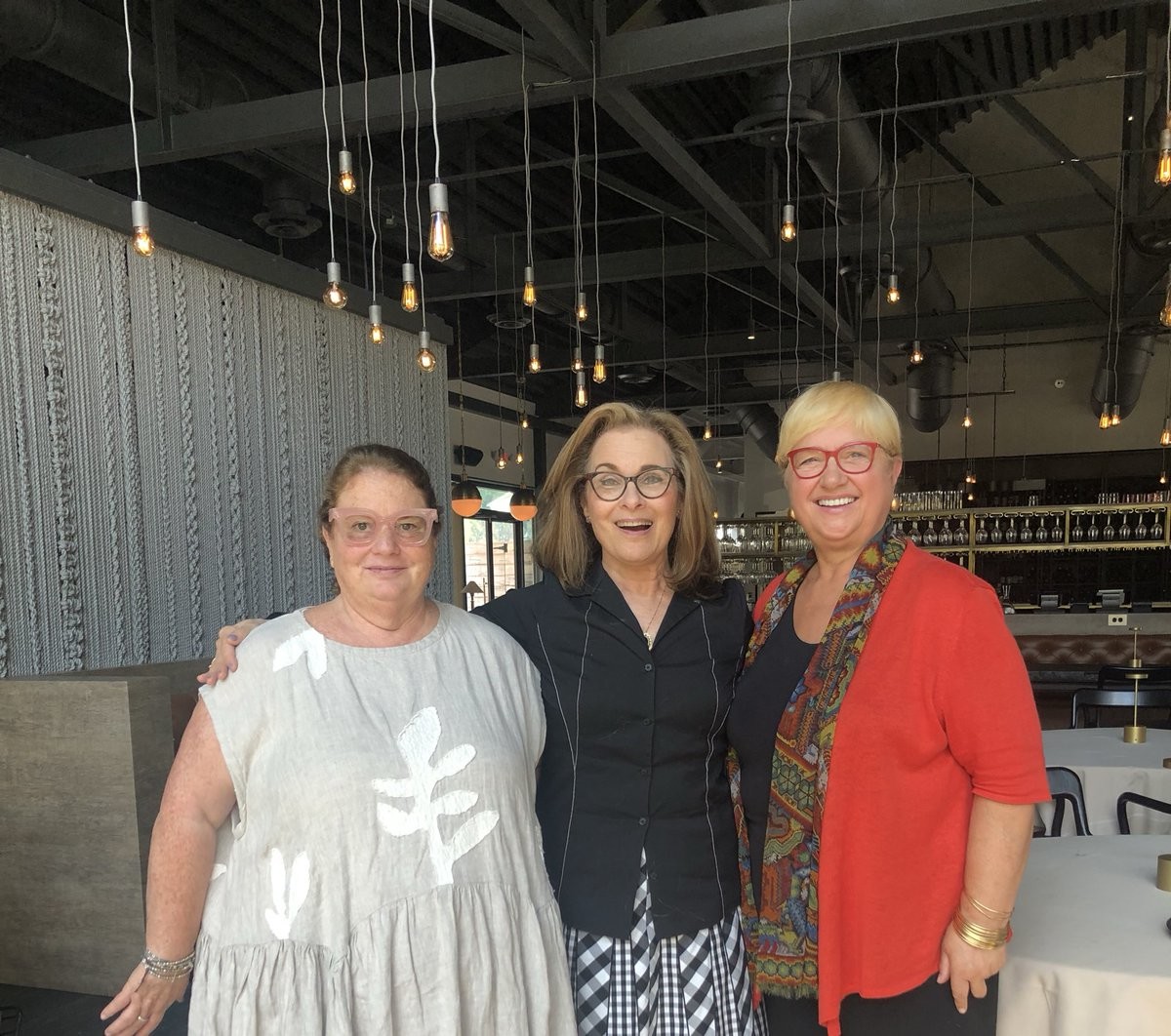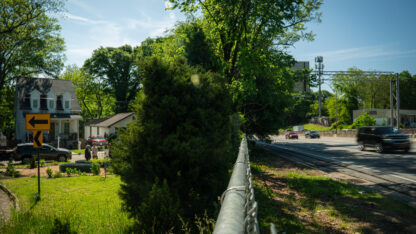Chefs Lidia Bastianich And Anne Quatrano Reflect On Their Culinary Journeys

Lois Retizes spoke with chefs Anne Quatrano, left, and Lidia Bastianich, right, at a PBS member luncheon in early October.
Lidia Bastianich
In early October, Lois Reitzes spoke with celebrity chef, author and restaurateur, Lidia Bastianich, along with chef and premier Atlanta restaurateur, Anne Quatrano, during a member luncheon for our PBS station, ATLPBA.
Bastianich is an Emmy award-winning television host of the PBS show, “Lidia’s Kitchen.” She is also a cookbook author and a restaurateur. In her newest book, “Felidia,” she shares the beloved recipes from her New York restaurant of the same title. Quatrano hosted a luncheon in Bastianich’s honor. The luncheon — and conversation — was held at Quatrano’s renowned restaurant Bacchanalia, where she served dishes from Bastianich’s cookbook. The cookbook, “Felidia,” will be available for purchase on Tuesday.
Below are some snippets from that conversation.
Bastianich on opening her first restaurant:
“After opening our first restaurant, we hired an Italian-American chef because the Italian-American cuisine is quite different than what happens in Italy, but that’s what people wanted. When you open a restaurant, you do a little research, and I realized that I had to get myself in the kitchen. I became his sous chef for 10 years, and in those 10 years, we opened two restaurants. I realized how much more education I needed, so I went back to Italy in the summers and worked with chefs in Italy. In 1980, we sold those two restaurants, went to the city and opened Felidia in 1981. That’s where I became the chef and cooked regional Italian cooking.”
On how working on their family farms influenced their culinary skills:
“My mom grew up in Cartersville, Georgia, and her family had farms. Coming to Georgia (from Connecticut where we grew up) and working on the fields in the summer wasn’t our favorite thing to do as kids. When my husband and I moved down to Georgia, we embraced farming simply because we wanted the best ingredients to cook with. My grandmother loved to cook, and I learned a lot watching her. I also learned the importance of doing things the right way, like using the best ingredients and making your own sauce,” Quatrano said.
“I was born in Istria, near Pula, an Italian town. My mother put my brother and I with grandma, who was about 3 kilometers away from the city. Food was kind of scarce in the aftermath of the war, so grandma and grandpa were busy making, preparing, and providing food for the whole family. We were put in this beautiful courtyard, and we had all kinds of animals: chickens, ducks, geese, rabbits, goats. I would milk the goats every morning for breakfast, collect all the eggs, and when we had too much milk, grandma would make ricotta. We had two pigs, and every November was the slaughter. We would make the prosciutto, pancetta, sausages. As soon as the pigs were slaughtered, that was kind of an event. I was always involved with food in my formative years,” Bastianich said.
Quatrano on sharing the kitchen with her husband:
“In the beginning, Clifford and I were in Manhattan and cooked at a few different restaurants together. The first time we worked together, I hired him as my sous chef because I couldn’t really find anybody that could work hard, and I knew how hard he worked. We always shared a really strong work ethic and a dedication to what we were doing and how we were doing it. Once we moved to Atlanta and opened our own restaurant, it became a little harder because money was involved that was ours, which is a very different scenario. We struggled at first, then we got busy, then we struggled with that. We certainly did fight; it was hot in that kitchen at times. But I think now I really try to find the humor in things before I get terribly angry because almost all the situations that come up in restaurants have a comical portion to it as well as a very serious one.”





